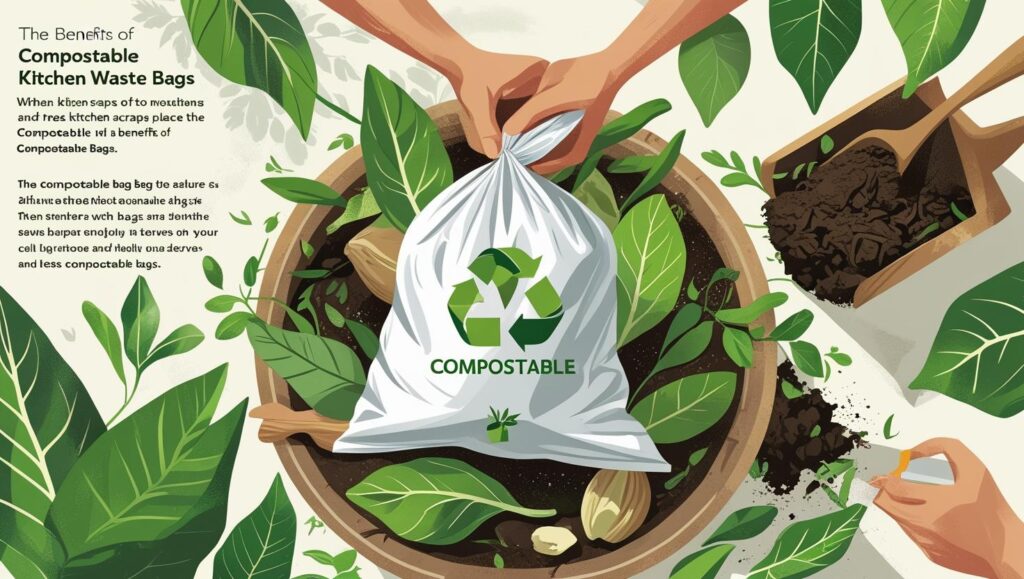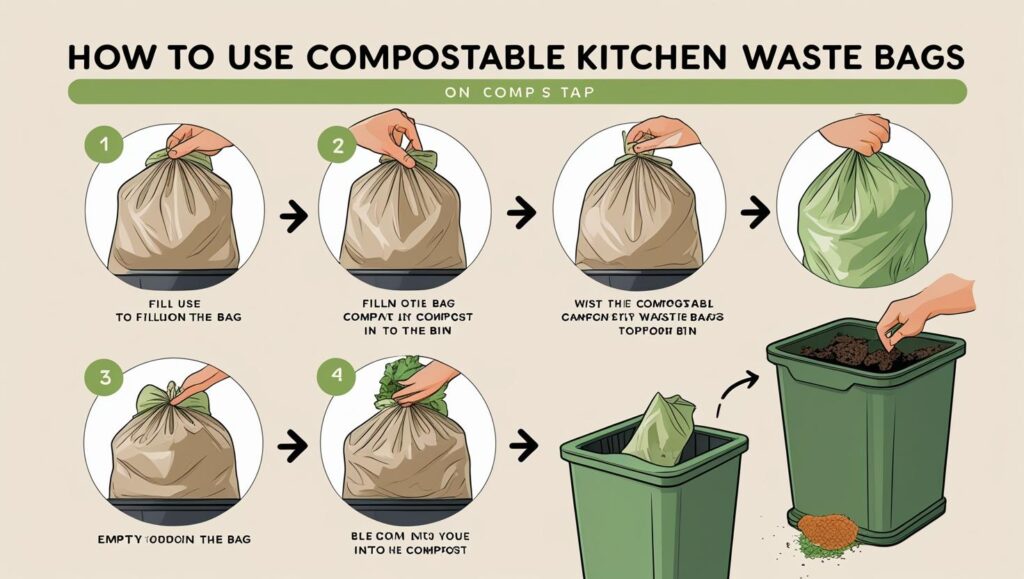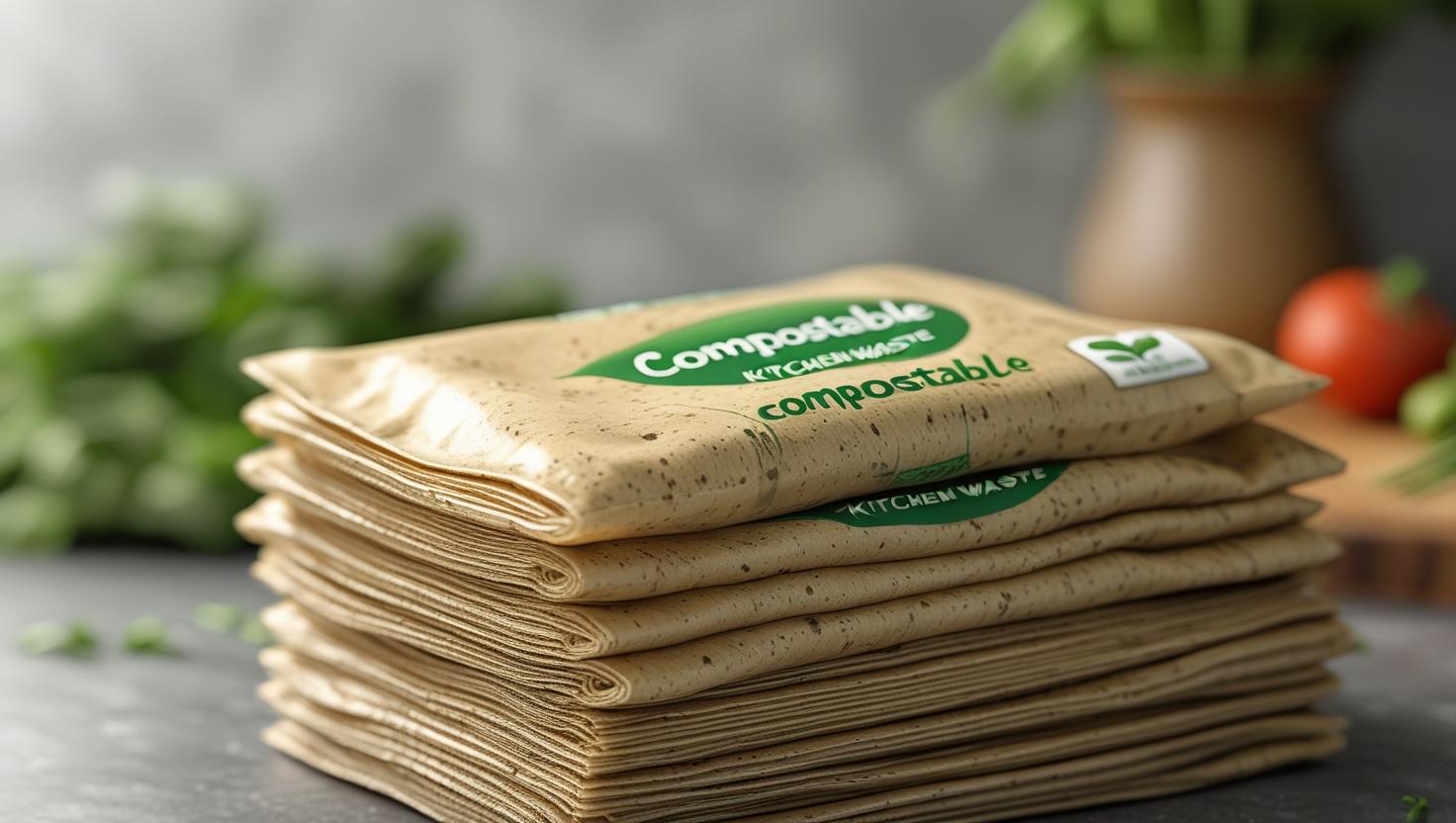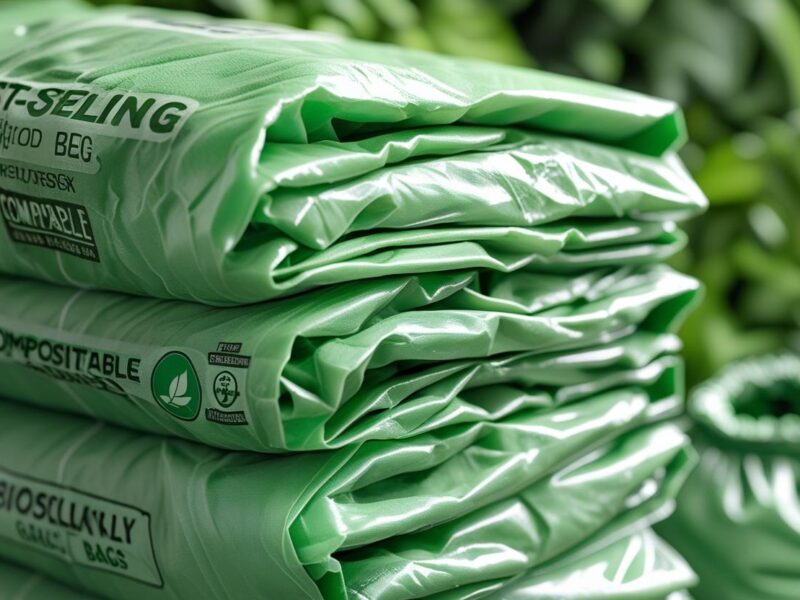Welcome, eco-conscious readers! Managing kitchen waste responsibly is an important step toward reducing landfill pollution and protecting the planet. While traditional plastic trash bags take hundreds of years to decompose, compostable kitchen waste bags break down naturally, leaving behind no harmful residue.
In this article, we’ll explore why compostable kitchen bags are the smart choice for your home, review the top options available, and share tips for getting the best use out of them. If you want a cleaner kitchen and a greener future, keep reading.

Why Choose Compostable Kitchen Waste Bags?
Switching to compostable kitchen waste bags has several advantages:
- Eco-friendly – Made from plant-based materials such as corn starch.
- Biodegradable – Naturally breaks down in composting conditions.
- Odor control – Many are designed to trap unpleasant smells.
- Safe for composting – Suitable for both home and municipal compost bins.
- Reduces plastic waste – Less harmful waste entering landfills and oceans.
Tip: Always look for certifications like EN 13432 or ASTM D6400 to ensure the bags are truly compostable.
Top 5 Compostable Kitchen Waste Bags
1. BioBag Compostable Kitchen Bags
Features:
- Made from plant-based resins
- Breathable design to reduce moisture and odor
- Certified compostable
Pros: Durable, fits most countertop bins
Cons: May degrade faster in humid conditions
2. UNNI ASTM D6400 Compostable Bags
Features:
- Made from corn starch
- 100% compostable and biodegradable
- Available in multiple sizes
Pros: Strong and tear-resistant
Cons: Slightly more expensive than regular plastic bags
3. GreenPolly Compost Bags
Features:
- Made from renewable resources
- Extra thick to prevent leaks
- Suitable for kitchen and yard waste
Pros: Leak-proof, eco-friendly
Cons: Limited size availability
4. If You Care Compostable Bags
Features:
- GMO-free, made from potato starch
- Certified compostable for both home and industrial composting
- Odor-resistant
Pros: Strong, eco-certified
Cons: Can be less flexible when cold
5. EcoSafe-6400 Compostable Bags
Features:
- Meets strict composting standards
- Ideal for small kitchen bins
- Tear-resistant
Pros: Fits well in compost pails, strong build
Cons: Needs dry storage to avoid premature breakdown

How to Use Compostable Kitchen Waste Bags Effectively
- Avoid excess moisture – Too much liquid can cause bags to break down prematurely.
- Empty frequently – Prevents odor and ensures bag integrity.
- Store in a cool, dry place – Keeps bags fresh and strong.
- Use the right size bag – Match bag size to your bin to avoid tearing.
- Compost properly – Ensure waste goes to an actual compost facility or compost pile.
Pros and Cons of Compostable Kitchen Waste Bags
| Pros | Cons |
|---|---|
| Eco-friendly and sustainable | More expensive than traditional plastic |
| Safe for composting | Shorter shelf life |
| Odor control features | Can tear if overloaded |
| Reduces landfill waste | Not suitable for long-term storage of wet waste |
Frequently Asked Questions
Q1: Can I use compostable bags for regular trash?
Ans: Yes, but they are best used for organic waste to take full advantage of their composting benefits.
Q2: How long do compostable bags take to break down?
Ans: Typically 3–6 months in composting conditions, depending on the environment.
Q3: Where can I buy compostable kitchen waste bags in Bangladesh?
Ans: You can find them on Daraz, Evaly, and in local eco-friendly household supply stores.
Conclusion
Compostable kitchen waste bags are a small change that can make a big difference for the environment. By replacing traditional plastic bags with compostable alternatives, you reduce harmful waste, protect wildlife, and contribute to a cleaner planet.


